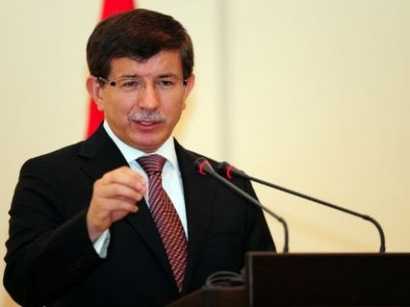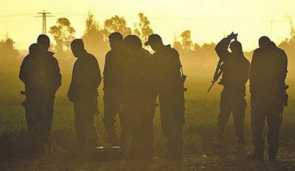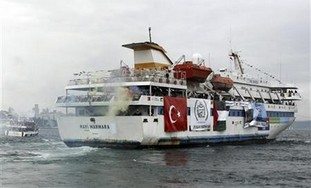It’s become a widely accepted assumption that Turkey is a rising powerhouse in the Middle East. The country’s prime minister Reccep Tayyip Erdogan has been cast as a “new sultan in a neo-Ottoman empire” after he staged a “conqueror’s march” last week through Egypt, Tunisia and Libya and lectured Arab leaders that he knows how to treat Israel, the ““West’s spoiled child,” as he put it.
There is considerable irony in all of this. Once upon a time the Ottoman Empire included at one time or another most of the Arab countries in the Middle East and stretched across much of North Africa. Unfortunately for the Turks they picked the losing side in the First World War and paid the penalty by having their empire taken away from them in 1923 by the Treat of Lausanne. Last week, however, the one-time colonials cheered the man who now leads their former imperial master. Go figure.
Yet, some think the new Ottoman emperor’s new clothes are threadbare. Guy Bechor, an Israeli expert on the Arab world, points out that Turkey faces a “credit bubble” that could burst at any time. Indeed, according to Bechor, Turkey’s budget deficit compared to its GDP is at 9.5 per cent, just shy of Greece’s 10 per cent. By comparison, Israel’s budget deficit is about three per cent and likely to drop to two per cent. Turkey’s economic growth – 10 per cent this year – is the result of “financial manipulation.”
Apparently Turkey’s banks have been handing out loans and mortgages at very low interest rates, prompting Turkish citizens to pile on the debt (Does this sound familiar?) This easy credit policy is made possible by Turkey’s Central Bank acting at the behest of Erdogan’s government. The result, says Bechor, is that Turkey’s external debt has doubled in the last 18 months, only 15 per cent of which was financed by foreign investment.
In effect, says Bechor, Erdogan’s popularly with Turkish voters is the result of cheap money, not a swing to Islamic fundamentalism on the part of the electorate. That popularity could disappear if, or when, the bubble pops? It’s happened elsewhere. The Greek economy is near collapse and civil unrest is rife. Europe’s economies are stagnant and anti-status quo sentiment is everywhere. President Obama is increasingly unpopular because unemployment in the United States remains stubbornly high at about nine per cent. Turkey may well go that way, too. Turkey’s unemployment, Bechor points out, is about 13 per cent, its currency has dropped sharply against the dollar and the country’s stock exchange has lost 40 per cent of its value in the last six months.
One of the tried and true tactics of politicians is to conjure an external enemy with which they can divert the populace from their own corruption and incompetence. Arab leaders, in particular, have pulled this stunt for decades, encouraging anti-Israeli sentiments and promoting a blame-the-Jews attitude among their people as a way to explain the backwardness and failure of Muslim societies. Of course, the ultimate diversion is war.
Erdogan is certainly fomenting hostility toward Israel, which not so long ago had close economic and military ties with Turkey. The two countries cooperated to keep the Middle East from boiling over, with Turkey serving as a sane counterbalance to the madmen who ran Iran and Iraq. Indeed, as journalist Martin Peretz observes, Turkey was once a “buffer against Muslim millenarianism.”
Not any more. Erdogan plays to the Islamists, using religious extremism to further his own ends, whatever they may be. Does anyone seriously think last year’s Gaza flotilla sailed without Erdogan’s approval or wasn’t intended as a deliberate provocation of Israel? Nine people died and dozens were wounded when Israeli navy commandos seized a Turkish ship, the Mavi Marmara that was part of a six-boat flotilla of self-proclaimed pro-Palestinian “activists” trying to run Israel’s blockade of the Gaza Strip. The Turks have been demanding an Israeli apology ever since and using Israel’s refusal as an excuse to expel Israel’s ambassador and harass Israeli businessmen in Turkey. Erdogan has even threatened to send the Turkish navy to protect another flotilla.
Such a threat raises some interesting scenarios. Turkey is a NATO member. Under the NATO charter an attack on one NATO member is considered an attack on all. If Israel, in the act of defending itself, sinks a Turkish ship, does that constitute an act of war against the NATO alliance?
The idea is absurd, of course, yet it makes you wonder why western leaders are allowing a NATO member to play such dangerous games. If Erdogan continues promoting Turkey as an imperial power at the expense of Israel, NATO will have to rethink its continued membership in the “western” alliance.
The question, of course, is why Erdogan acts as he does. One possible answer is President Obama who, if he could get away with it, would abandon the one stable and sane ally the United States has in the Middle East, namely Israel, in order to curry favour with the Muslim world. Obama’s imprimatur, tacit or otherwise, is all over Erdogan’s antics. In Peretz’s words: “(Obama’s) adoring view of Erdogan has stimulated the Turkish regime to be a force not for stability in Cairo or Ramallah.”
Perhaps the Israelis should be a force for instability among all those Kurds, sending “flotillas” to those who loathe Turkey’s continued imperialist domination of their traditional homelands. Indeed, it’s only logical–and fair–that if Erdogan supports the creation of a state for the “Palestinians,” then, presumably, he’d support creating a state for the Kurdish people on their traditonal homeland even if that terrority subtracts from Turkey’s. If it’s good for Gaza then surely it’s good for Turkey, too.






